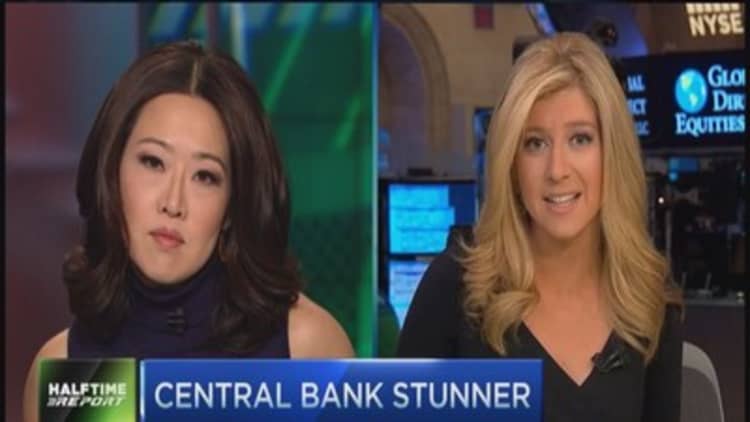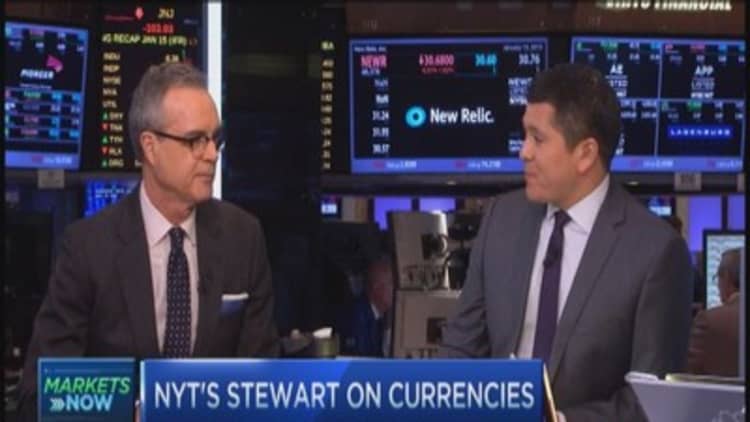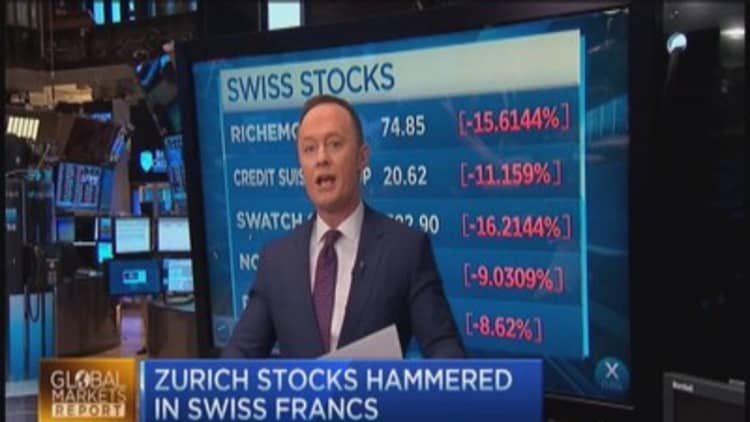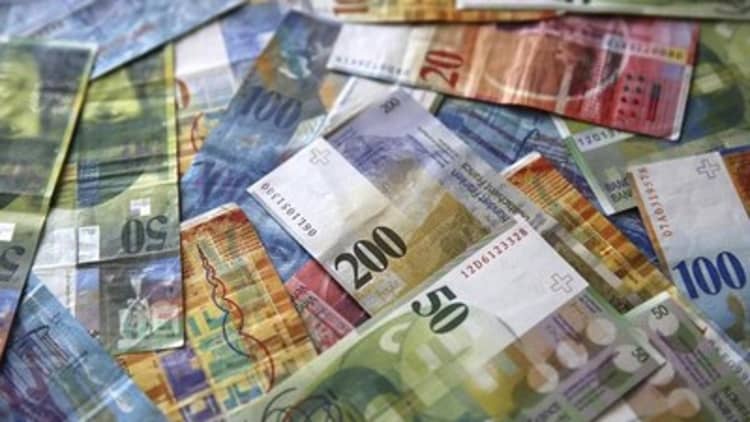


Here's what happened in Switzerland that shocked the world:
The central bank canceled its policy of pegging the Swiss franc at 1.20 to the euro, a policy that's been in place more than three years to keep the currency from getting too strong and hurting the economy.
The Swiss National Bank also cut interest rates deeper into negative territory to help cushion the blow and make the Swiss franc seem more unappealing since low rates are bearish for currencies.
But those low rates didn't deter traders from piling into the franc.
After the announcement, it surged almost 30 percent, flying to a record high.
Read More Swiss franc soars, stocks tank as euro peg scrapped
The reason for the Swiss decision: It was getting very expensive for the Swiss National bank to defend that 1.20 level.
"The attempt to hold the EUR/CHF 1.20 floor has resulted in a ballooning foreign reserves stockpile at the SNB," Societe Generale FX strategist Kit Juckes said in a note, referring to the Swiss National Bank.
"The reserves have climbed from CHF200bn in mid-2011 to almost CHF 500bn. These are now equivalent to 70% of Swiss GDP and have not been without controversy in Switzerland, as reflected in the referendum on the SNB's gold holdings on 30 November 2014."
The implication of Thursday's move: The Swiss authorities are worried about pressure on the euro against the franc ahead of the European Central Bank's policy meeting next Thursday, in which it is widely expect to announce a monetary stimulus.

That could put more pressure on the euro and further boost the appeal of the franc, making it even more costly for the Swiss central bank to defend.
"The timing of the decision could spur further expectation over what action the ECB is likely to take at its January 22nd meeting and suggests that the Swiss National Bank felt that they would have had difficulty maintaining the floor with ongoing euro depreciation," strategists at Scotiabank wrote.
So what does this major move mean going forward:
Pain for Swiss exporters. Think Nestle and other Swiss multinationals that are going to have to deal with a stronger franc, making their products a lot less competitive in global markets. No wonder the Swiss stock market plunged.
Read More Davos: International conflict is world's top threat
A weaker euro?
By abandoning the peg, the Swiss have removed a key buyer of the euro. And that could put a lot more pressure on the euro and boost the U.S. dollar.
"This move sees a major buyer of the euro leave the building and opens the way for further/faster euro weakness. It will trigger further broad-based dollar strength," Societe General currency strategists wrote.
ECB QE? Pros say, the timing of the move reflects Switzerland's expectation for dramatic easing action from the European Central Bank and raises market expectations that it will be announced soon.
Read More ECB stimulus already priced into market: Pros
For world markets: In this postcrisis climbing of the wall of worry, currency volatility has just gone to the top of the worry list.
A stronger dollar, wild swings and crazy central bank surprises have the potential to destabilize markets and economies. It could be a trigger for risk aversion, or it could draw even more money into U.S. markets as a global safe haven.
"In the realm of volatility 'over there' we look like a safe and high-yielding haven," wrote David Ader of CRT Capital Group.
That's why it's such a big deal—far beyond Switzerland.


